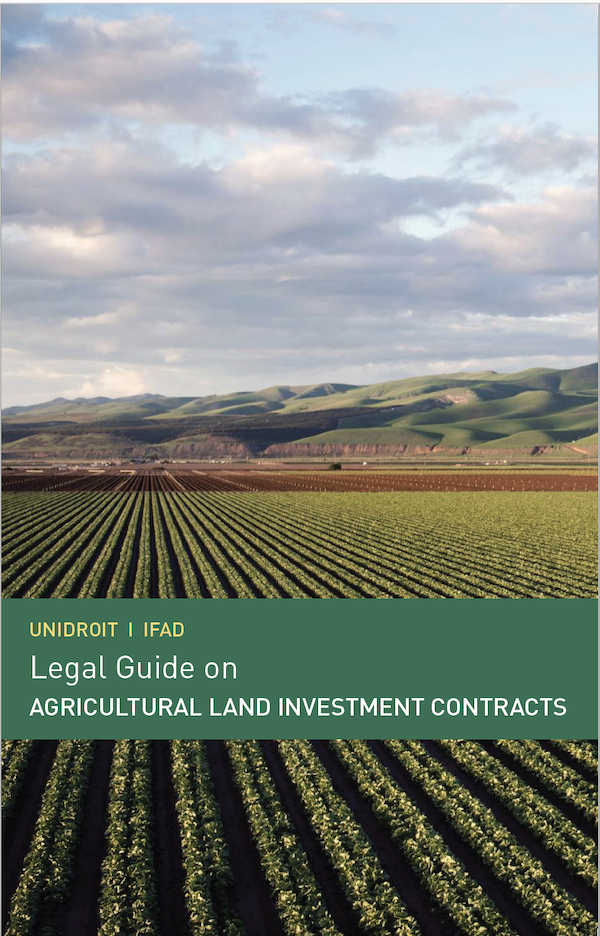Resource information
product. Except where otherwise indicated, material may be copied, downloaded and printed for private
study, research and teaching purposes, or for use in non-commercial products or services, provided that
appropriate acknowledgement of UNIDROIT/IFAD as the source and copyright holders is given and that
UNIDROIT/IFAD’s endorsement of users’ views, products or services is not implied in any way.
Investment in agriculture is essential for sustainable development, in particular for achieving food security, adequate nutrition, decent employment, poverty reduction and environmental protection. In seeking to attract agricultural investment, many governments and local communities have entered into Agricultural Land Investment Contracts (ALIC). Mindful of the contractual challenges involved and considering the importance of enhancing knowledge of the legal regime applicable to agricultural land investment operations, the International Institute for the Unification of Private Law (UNIDROIT) in collaboration with the International Fund for Agricultural Development (IFAD) have prepared this UNIDROIT/IFAD Legal Guide on Agricultural Land Investment Contracts (ALIC Legal Guide).
Building upon the UNIDROIT Principles of International Commercial Contracts (UPICC) and the UNIDROIT/FAO/IFAD Legal Guide on Contract Farming, the ALIC Legal Guide seeks to provide innovative guidance to improve such contracts by effectively operationalising a number of international principles and standards for the promotion of secure tenure rights, equitable access to land, and responsible agricultural investment as enshrined in the Voluntary Guidelines on the Responsible Governance of Tenure of Land, Fisheries and Forests in the Context of National Food Security (VGGT), the Principles for Responsible Investment in Agriculture and Food Systems (CFS RAI Principles), and the United Nations Guiding Principles on Business and Human Rights. The ALIC Legal Guide provides a framework that can be used by a broad range of legal actors when developing contracts, domestic policies, regulatory frameworks, and corporate social responsibility programmes. It may also be used to support capacity development and to raise awareness among legitimate tenure right holders and local communities regarding their rights.

